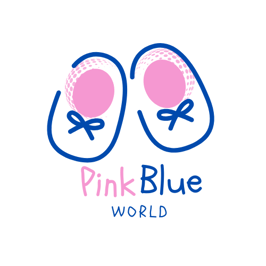Enjoy amazing discounts on baby essentials!

How to Get Pregnant Fast: Tips for Trying to Conceive


Ready to start your journey to parenthood? Discover expert-backed tips to get pregnant faster and boost fertility naturally with helpful product recommendations!
When you’ve made the exciting decision to start a family, it’s only natural to want things to happen fast. While conception can take time for some couples, there are practical and proven steps you can take to boost your chances of getting pregnant more quickly. From tracking ovulation to optimizing your lifestyle, we’re breaking down the best tips to help you conceive, with a few must-have products to support your journey.
1. Track Your Ovulation Accurately
Understanding your menstrual cycle and identifying your fertile window is crucial. Ovulation usually occurs about 14 days before your next period. The 2–3 days leading up to ovulation are your most fertile.
Try This:
📌 Clearblue Advanced Digital Ovulation Test
With over 99% accuracy, this test identifies your 2 most fertile days using hormone detection.
2. Maintain a Healthy Weight
Being significantly underweight or overweight can disrupt your menstrual cycle and ovulation. Aim for a balanced diet, regular physical activity, and a healthy BMI. Track your nutrition and fitness to help maintain optimal fertility levels.
3. Start Prenatal Vitamins Early
Prenatal vitamins aren't just for pregnancy—they're great for preconception too. Folic acid, in particular, is key in preventing neural tube defects and can support early fetal development from day one.
Try This:
📌 Nature Made Prenatal Multivitamin with Folic Acid
Trusted by thousands of women and recommended by OB-GYNs.
4. Use Fertility-Friendly Lubricants
Many conventional lubricants can hinder sperm motility. If you’re using any during intercourse, make sure it’s designed for conception.
Try This:
📌 Pre-Seed Fertility Lubricant
Specifically formulated to be sperm-friendly and recommended by fertility specialists.
5. Avoid Stress and Get Enough Sleep
Chronic stress can throw off your cycle and hormone levels. When you're stressed, especially over a long period, your body produces more cortisol. High cortisol levels can:
Disrupt the hormonal balance needed for ovulation (particularly luteinizing hormone and follicle-stimulating hormone)
Delay or prevent ovulation altogether
Affect your libido and menstrual regularity
Stress can also lead to lifestyle choices like poor diet, lack of exercise, or excessive alcohol, further reducing your fertility.
Sleep isn't just about feeling rested—it’s vital for hormonal regulation. Inadequate or poor-quality sleep may lead to:
Irregular menstrual cycles
Poor egg quality
Lower levels of reproductive hormones like estrogen, progesterone, and melatonin
Increased risk of insulin resistance, which can impact ovulation (especially in women with PCOS)
Experts recommend 7–9 hours of quality sleep per night when trying to conceive. Sleep helps regulate important fertility hormones like leptin and melatonin.
6. Have Regular, Well-Timed Intercourse
Aim to have sex every 1-2 days during your fertile window. Too frequent or too infrequent intercourse can reduce sperm quality or miss the fertile window altogether.
Bonus Tip: Use fertility tracking apps to stay on top of your cycle.
7. See a Doctor If You’re Concerned
If you're under 35 and have been trying for over a year (or 6 months if over 35), consult a fertility specialist. Sometimes, underlying medical issues need to be addressed before conception can occur.
Final Thoughts
Getting pregnant can be a deeply personal and sometimes emotional journey. While you can't control everything, these simple, science-backed steps can help you optimize your chances and feel more empowered.
Ready to start trying? Make sure your body is ready, your timing is right, and your mind is calm. And remember: your journey is uniquely yours.
